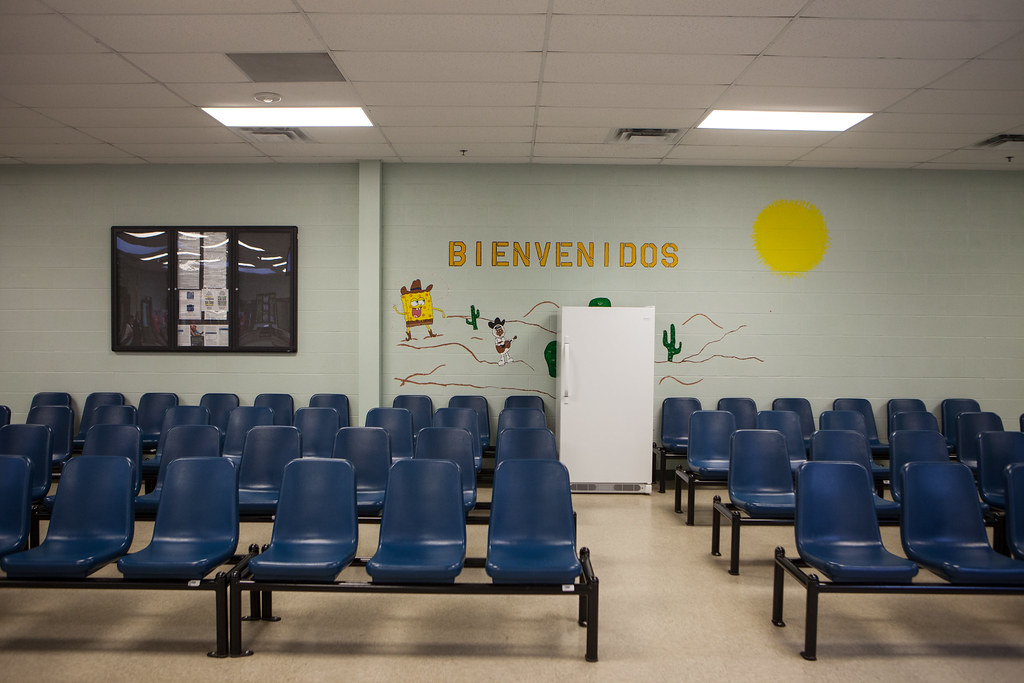A push to keep migrant families detained longer in the United States would do little to deter those who are fleeing extreme violence in their home countries.
The Trump administration wants to replace the decades-old Flores court agreement, which limited the time a migrant family suspected of entering the United States illegally, with a new regulation. That new regulation would keep families with children in a detention center indefinitely. Under Flores, migrant families with children could be detained no longer than 20 days.
But Denise Gilman, who directs the Immigration Clinic at the University of Texas at Austin School of Law, says the rule change will not deter those fleeing “extreme violence” in Central American countries like El Salvador and Nicaragua. She believes the new federal regulation is both unlawful and ineffective, she says.
“It doesn’t work,” Gilman says. “There has been clear evidence that as family detention has expanded, as detention of minors has expanded, we’ve actually seen increases in the numbers of asylum-seekers arriving at the border.”
Rule changes are made all the time, but Gilman says this is a different matter because the change would do away with the legal protections for children, in particular, established in the Flores agreement.
“It does not appear to be lawful,” Gilman says. “Litigation has already been filed and will likely pick up at this point.”
Gilman says once the White House moved away from a humanitarian approach toward families migrating or seeking asylum with children to one more focused on detention and deportation, it ran up against legal limits established in the Flores agreement.
“[It] puts limits on how long the government can detain children,” Gilman says.
Acting Homeland Security Secretary Kevin McAleenan pointed out on Wednesday that before the 20-day rule for families was put into effect, those families, on average, were held 50 days.
But Gilman argues that such prolonged detention would have a lasting impact on a child.
“Fifty days for a child, deprived of liberty in a prison-like facility, is demonstrated to be quite traumatic and problematic,” Gilman says. “That’s not very reassuring.”
She says the rule change would do away with any limitations on detention periods, so the government could, theoretically, legally hold families for any length of time.
“There would be nothing to prevent the government from holding families indefinitely; that’s exactly what the rule seeks to do,” she says.
And some families have been held for long periods before, she says. In 2014 and 2015, under the Obama administration, she says some were detained for up to nine months.
“I personally worked with students to represent families who were detained over six months,” Gilman says.
Written by Caroline Covington.















